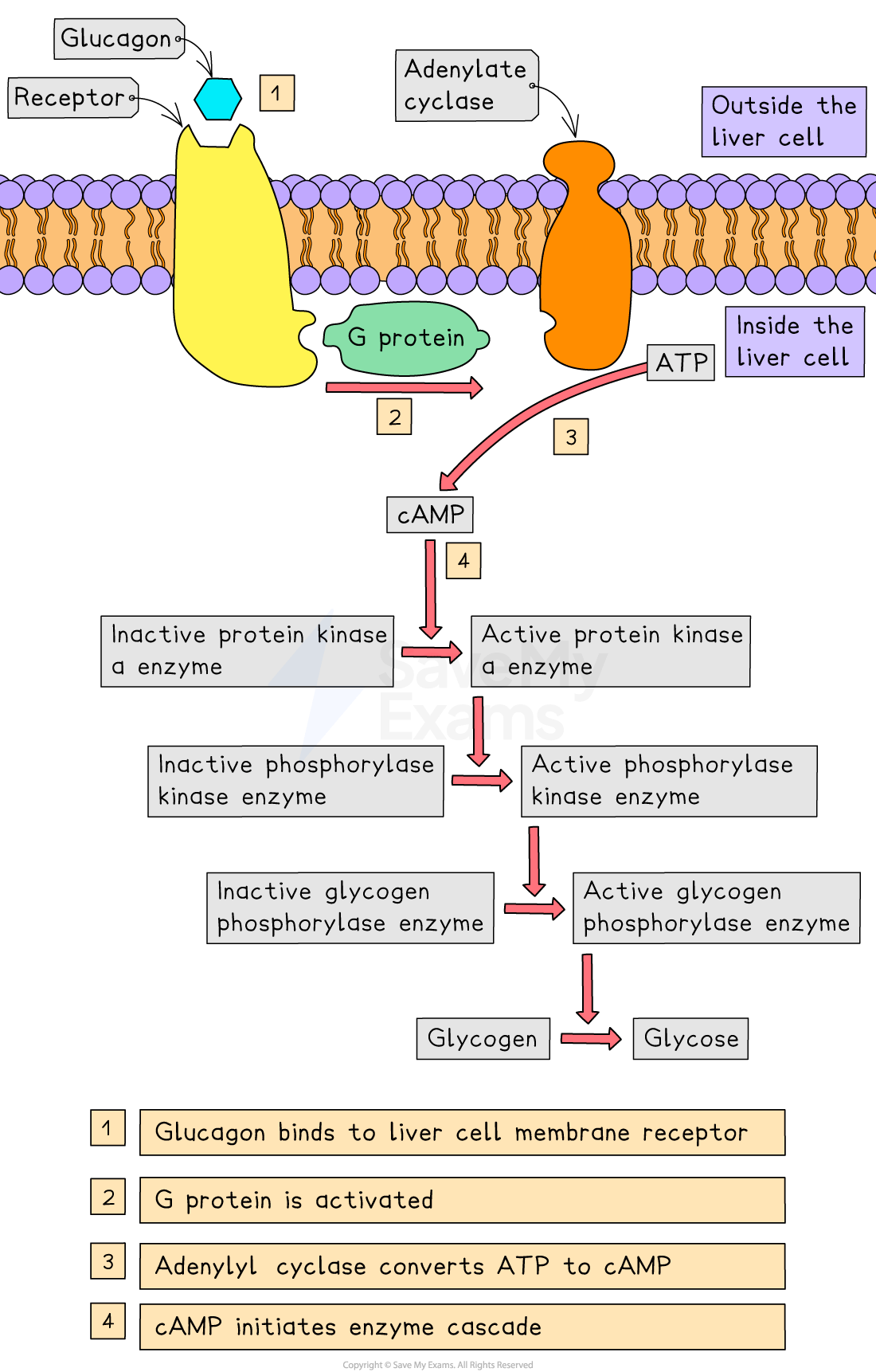Glucose Regulation: Glucagon (AQA A Level Biology): Revision Note
Exam code: 7402
The action of glucagon
A decrease in blood glucose concentration to a level that is below the normal range is detected by cells in the pancreas
In response to this stimulus α cells in the pancreas secrete the hormone glucagon
Glucagon causes an increase in blood glucose by activating enzymes that:
convert glycogen to glucose in glycogenolysis
convert glycerol and amino acids into glucose
Examiner Tips and Tricks
Be careful with your language when describing the role of glucagon. It does not directly convert molecules into glucose, but instead activates enzymes that carry out these processes.
The second messenger model of glucagon action
The activation of glycogenolysis enzymes by glucagon occurs via a sequence of events known as the second messenger model
Glucagon initiates this process as follows:
glucagon binds to receptors on the cell surface membranes of target cells, e.g. liver cells
this activates a G protein which in turn activates the enzyme adenylate cyclase
adenylate cyclase is also known as adenylyl cyclase
active adenylate cyclase catalyses the conversion of ATP to cyclic AMP (cAMP)
cAMP is known as a second messenger
cAMP activates the enzyme protein kinase A, which initiates a cascade of reactions that results in the activation of enzymes that break down glycogen to glucose

Examiner Tips and Tricks
Make sure that you learn the essential steps in this process; pay particular attention to the roles of:
adenylate cyclase
cAMP
protein kinase

Unlock more, it's free!
Did this page help you?